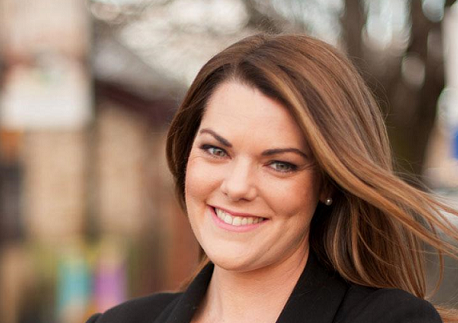
An Australian senator has won a defamation case against a former political opponent she had accused of making sexist slurs towards her.
Sarah Hanson-Young, of the Greens party, argued David Leyonhjelm defamed her in interviews last year by saying she was a misandrist and a hypocrite.
Mr Leyonhjelm, who has since quit the Senate, failed to persuade a judge that his remarks were legally protected.
A judge ordered him to pay A$120,000 (£63,000; $80,000) plus costs.
When she filed the Federal Court case last year, Ms Hanson-Young become the first Australian sitting politician to sue another for defamation.
The feud between the pair fed into a wider public debate about sexism in Australian politics, where women comprise about a third of parliament.
Ms Hanson-Young said she would donate the compensation to women’s charities.
“When a man does the wrong thing, he should apologise, and when he doesn’t, he should be called out,” Ms Hanson-Young said on Monday.
“And that’s what I did in this case – and I did it, not for me, but for every woman and girl across the country who has ever been told to stay silent, made to stay silent.”
What prompted the case?
Mr Leyonhjelm, a Liberal Democrat, was widely criticised after he told Ms Hanson-Young to “stop shagging men” during a debate in the Senate about curbing violence against women.

After Ms Hanson-Young spoke out about the remarks, he repeated similar comments in television and radio interviews.
The case drew additional attention when Ms Hanson-Young accused Mr Leyonhjelm of “slut-shaming” her. However, she ultimately did not sue on these grounds.
Rather, much of the legal case centred on Mr Leyonhjelm’s claims in interviews that Ms Hanson-Young had said “words to the effect that all men are rapists”.
Ms Hanson-Young strongly denied ever making such a statement, and her account was backed up in court by other senators.
Mr Leyonhjelm’s lawyers denied he had concocted the statement, but conceded that he could not remember her exact words.
They argued Mr Leyonhjelm’s media interviews should be covered by parliamentary privilege – a defence against defamation – because the comments had originated in the Senate.
Justice Richard White disagreed, adding Mr Leyonhjelm’s comments had been “actuated by malice in that he published his claim concerning the applicant to a mass audience with the intention of publicly shaming her”.
The court will make a ruling on the legal costs next month.
Source: bbc.co.uk






Be the first to comment